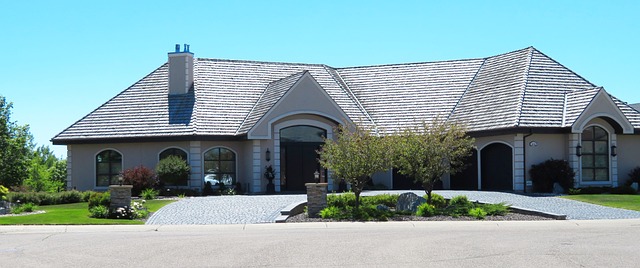The Executive Condominium (EC) market in Singapore serves as a midpoint between public and private housing, offering diverse options for homebuyers with varying needs. EC prices in Singapore are influenced by factors such as location, development size and type, market demand, proximity to amenities like transportation and shopping centers, unit features, the maturity of the estate, government policies including subsidy quantum and cooling measures, economic indicators like interest rates and job market stability, and future developments. The ec price singapore reflects these myriad considerations, with newer launches and those in mature estates commanding higher prices. Investors and families should monitor ec price Singapore trends closely to assess the affordability and investment value of EC properties, considering both current market conditions and potential future growth. Understanding the impact of government strategies on sustainability and innovation within the EC sector is also crucial, as these policies directly affect production costs and supply chain dynamics, keeping the ec price Singapore competitive and accessible. Prospective buyers should carefully evaluate their financial readiness, explore various financing options, and budget for all associated costs to ensure a sound investment that supports long-term financial security. Keeping an eye on the ec price Singapore remains a key step in making informed decisions within this dynamic market.
In the dynamic landscape of Singapore’s housing market, Executive Condominiums (ECs) have emerged as a key segment, offering a blend of private and public housing benefits. This article delves into the multifaceted nature of EC prices in Singapore, dissecting the various factors that influence their valuation. From government policies to location-specific developments, each element plays a pivotal role in determining the EC price Singapore residents encounter. By analyzing historical trends over the past decade and providing strategic insights for budgeting and affordability, prospective buyers can navigate this complex market with greater confidence. Understanding the nuances of EC pricing is essential for anyone considering an EC as their home.
- Understanding EC (Executive Condominium) Pricing in Singapore: An Overview
- Factors Influencing EC Prices in Singapore's Real Estate Market
- Historical Trends of EC Prices in Singapore from the Past Decade
- The Role of Government Policies in Shaping EC Prices in Singapore
- How Location and Development Affects the Price of ECs in Singapore
- Strategies for Budgeting and Affordability When Considering an EC in Singapore
Understanding EC (Executive Condominium) Pricing in Singapore: An Overview

In Singapore, the Executive Condominium (EC) market presents a unique segment for homebuyers seeking a balance between affordability and luxury. The pricing of ECs in Singapore is influenced by several factors, including location, development size, unit type, and the current demand within the real estate market. Prospective buyers must understand that EC prices in Singapore are determined by the Housing & Development Board (HDB), which sets pricing parameters to ensure these homes remain accessible to middle-income families while still offering quality living spaces akin to private condominiums. The pricing structure is designed to cater to this demographic, providing them with options that allow for both ownership and upgrading from public to private housing. As such, the EC price in Singapore is subject to fluctuations based on market trends, with prices typically higher than those of new flat buyers but lower than premium condominiums.
When considering the EC price in Singapore, it’s important to examine recent transactions and newly launched projects to gauge the market’s sentiment. Prices can vary significantly across different regions, with mature estates like Sengkang, Punggol, and Bishan often offering a range of EC units at competitive rates. Additionally, the eligibility criteria for purchasing an EC include income ceilings and minimum occupation periods, which also impact pricing. These factors combined ensure that the EC price in Singapore reflects both the property’s value and the buyer’s eligibility, making it a pivotal aspect of the nation’s residential property landscape.
Factors Influencing EC Prices in Singapore's Real Estate Market

In Singapore’s real estate market, Executive Condominium (EC) prices are influenced by a multitude of factors that reflect both the current market dynamics and broader economic indicators. Proximity to amenities such as shopping centers, schools, and public transportation plays a significant role in shaping EC prices, with units near these conveniences often commanding premium rates. The development’s age also affects pricing, with newer launches typically fetching higher prices due to their modern facilities and design appeal. Additionally, government policies, including the quantum of subsidies available for eligible buyers and the introduction of cooling measures, can lead to fluctuations in EC prices. The overall economic climate, including interest rates and the job market, also impacts the purchasing power of potential buyers, indirectly influencing EC prices in Singapore.
The supply and demand dynamics within the region where an EC is located are pivotal in determining its price. Factors such as the size and type of units, the reputation of the developer, and the unique selling points of the development project can either boost or dampen market interest. The maturity of the estate and its integration with the surrounding community also affect desirability, thereby influencing EC prices. Furthermore, the location’s future developments, such as planned infrastructure projects, can either enhance or devalue an EC’s position in the market, necessitating adjustments in pricing to remain competitive within the EC price spectrum in Singapore.
Historical Trends of EC Prices in Singapore from the Past Decade

Over the past decade, the Executive Condominium (EC) price trends in Singapore have been influenced by a variety of factors including government policy, economic conditions, and demographic shifts. The EC market in Singapore has seen a steady increase in prices, reflecting the overall demand for housing and the limited supply of such units. In the early part of the decade, ECs were relatively affordable compared to private condominiums, making them an attractive option for middle-income families. By 2013, prices began to rise significantly, partly due to the tightening of loan-to-value (LTV) ratios and the introduction of cooling measures aimed at preventing a property bubble. These measures, along with a strong economic performance in Singapore, bolstered investor confidence and led to a surge in EC resale prices.
The subsequent years saw a more moderate increase in EC prices as the market adjusted to the new measures. The government’s efforts to balance housing demand and supply continued to shape the EC price landscape. In recent years, the average EC price in Singapore has been influenced by factors such as population growth, investment trends, and the introduction of new EC projects. Despite occasional cooling measures, the overall trend has been one of gradual upward movement, with prices reaching higher levels than in previous years. Prospective buyers and investors interested in the EC market in Singapore should closely monitor these trends, as they can significantly impact the affordability and investment potential of these properties. Keywords: EC Price Trends Singapore, Executive Condominium Pricing History.
The Role of Government Policies in Shaping EC Prices in Singapore

In Singapore, the Electronic Continuity (EC) market has experienced significant growth and innovation, with prices reflecting both technological advancements and market demand. The Singaporean government plays a pivotal role in shaping EC prices through a combination of policy measures and regulatory frameworks. These policies are designed to balance the ecological impact of production with economic objectives, ensuring that ECs remain accessible while fostering sustainable practices. For instance, tax incentives for businesses that adhere to environmentally friendly manufacturing processes can influence the cost structure of ECs. Additionally, regulations that dictate environmental standards directly affect the production costs, thereby impacting the final price of ECs in Singapore. The government’s commitment to maintaining a competitive and sustainable EC market is evident in its continuous evaluation and adjustment of these policies, which in turn guide the pricing dynamics within the industry. As a result, consumers in Singapore benefit from a steady supply of reasonably priced ECs that align with both environmental and economic considerations.
Furthermore, the government’s initiatives to promote research and development in the EC sector contribute to technological advancements that can reduce production costs over time. These cost reductions have the potential to translate into lower prices for consumers interested in purchasing EC products. The strategic allocation of resources towards developing a robust local supply chain also plays a role in moderating prices. By ensuring a competitive landscape, the government indirectly influences the market forces that determine the EC price in Singapore. This holistic approach to policy-making ensures that the market remains responsive to both technological changes and ecological imperatives, ultimately shaping the affordability and availability of ECs for residents.
How Location and Development Affects the Price of ECs in Singapore

In Singapore, Executive Condominiums (ECs) serve as a significant stepping stone for aspiring homeowners, offering a hybrid of benefits between public and private housing. The price of ECs in Singapore is influenced by a myriad of factors, with location and development being paramount. Proximity to established transportation networks, such as Mass Rapid Transit (MRT) stations or major expressways, can significantly drive up the cost of these properties. For instance, ECs located near the Tampines Regional Centre or within mature estates like Ang Mo Kio are typically more expensive due to their convenience and the amenities available to residents. Additionally, the development potential of the area also plays a role; areas slated for future growth or redevelopment can see an increase in property values over time. This is because buyers often anticipate such changes, factoring them into their investment decisions, thereby influencing the ec price Singapore. Developments like the upcoming Bidadari estate or the transformation of Paya Lebar into a regional centre can make ECs in these areas more attractive to investors and families alike, reflecting in higher prices. The balance between supply and demand also affects pricing; with limited land space in Singapore, new EC launches in sought-after locations can command higher prices, especially if they offer superior facilities or are designed to meet the evolving preferences of homebuyers. These dynamics underscore the importance of considering both current and future development trends when assessing the ec price Singapore.
Strategies for Budgeting and Affordability When Considering an EC in Singapore

In Singapore, Executive Condominiums (ECs) offer a golden middle ground for families looking to transition from public to private housing. Prospective buyers considering an EC in Singapore must navigate the ec price singapore landscape with careful planning and budgeting strategies. One key approach is to assess your financial situation early on, taking into account both current and anticipated future income levels. This forward-thinking stance will aid in determining a sustainable mortgage loan that aligns with your long-term financial plan. Additionally, potential EC owners should explore various financing options available through banks and financial institutions in Singapore, as different schemes may offer competitive interest rates or favorable loan-to-value ratios. It’s also advisable to set aside funds for additional costs such as legal fees, stamp duties, and maintenance fees associated with purchasing an EC. By doing so, you can manage these expenses without overextending your budget, ensuring a smoother financial trajectory post-purchase. Keeping abreast of the ec price singapore trends and understanding the resale market values can also provide insight into the property’s potential for appreciation or depreciation, influencing your investment decisions and future financial security.
In conclusion, the pricing dynamics of Executive Condominiums (ECs) in Singapore are influenced by a multitude of factors including government policies, location, development quality, and historical market trends. Prospective buyers must consider these elements carefully when evaluating EC price trends in Singapore to make informed decisions. The Singaporean real estate landscape presents both challenges and opportunities for those looking to invest in or purchase an EC. By understanding the intricacies of EC pricing, potential buyers can navigate the market more effectively, ensuring they find a unit that meets their needs within their budget. For the most accurate and up-to-date information on EC prices in Singapore, one must stay abreast of current market data and government initiatives, as these play a pivotal role in shaping the real estate market’s trajectory.



